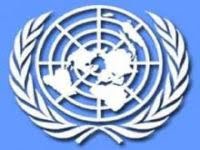Security Council back to analyze conflict in Syria
Prensa Latina
The Security Council will consider the crisis in Syria after intense efforts of UN Special Envoy to that country, Lakhdar Brahimi, and various proposals to revive previous diplomatic initiatives.
The future of Syria corresponds only to the will of the Syrians, defended Medvedev.
The meeting, scheduled for this morning in the kind of private meetings with an official title of the Middle East, Syria, will be held behind closed doors between the 15 members of this organ responsible for international peace and security.
The discussion is being carried out after an extensive tour by the United Nations Envoy to the conflict that is comprised of Saudi Arabia, Turkey, Iran, Iraq, Egypt, Lebanon, Syria, Russia and China, among other countries linked in some way with the crisis.
It is also held after the failure of a truce arranged by Brahimi with the parties in in Syria in order to cope with celebrating the Muslim Eid al-Adha (sacrifice).
Among the most recent initiatives in recent days with respect to the issue of this Arab country, are four points made by China aimed at advancing a solution to the problem.
The idea includes a ceasefire from the Government and armed opposition groups, as well as designation of interlocutors with decision-making power to formulate a plan, with the involvement of Brahimi and the international community.
In any case, it supports the implementation of the agreement of the meeting last June in Geneva, announced by Foreign Ministers of the countries of the so-called Action Group for Syria and the six-point plan of former UN mediator, Kofi Annan.
In turn, Russia, first promoter of the Geneva agreements, supported a proposal from Egyptian President Mohamed Morsi, of creating a named Regional Quartet composed of Egypt, Turkey, Iran and Saudi Arabia.
Thus, the last two are incorporated into the efforts initiated at the Conference of the Swiss city.
That conclave was attended by UN and Arab League officials and those responsible for the foreign policy of the European Union, China, United States, France, United Kingdom, Russia, Turkey, Iraq, Kuwait and Qatar.
Brahimi also demanded that the Geneva agreements be carried out. He also defended a Security Council resolution based on these conclusions, including establishing guidelines for a future transition in Syria and the creation of a government that includes all political forces.
However, the Russian Foreign Minister, Sergei Lavrov, ruled out the need for a text of this UN body to implement the principles established in Geneva and emphasized that the key is a truce including a ceasefire, curbing violence and starting negotiations.
Translated from the Portuguese version by:
Lisa Karpova
Pravda.Ru

Subscribe to Pravda.Ru Telegram channel, Facebook, RSS!


